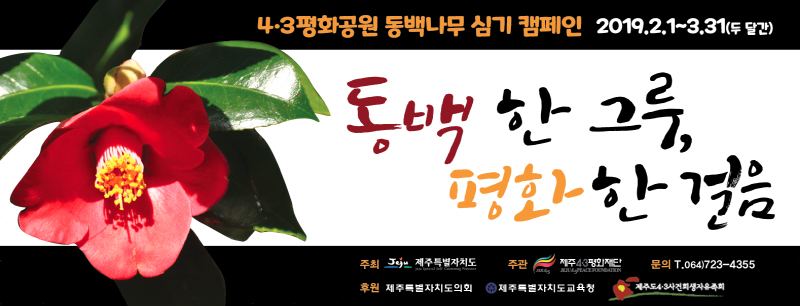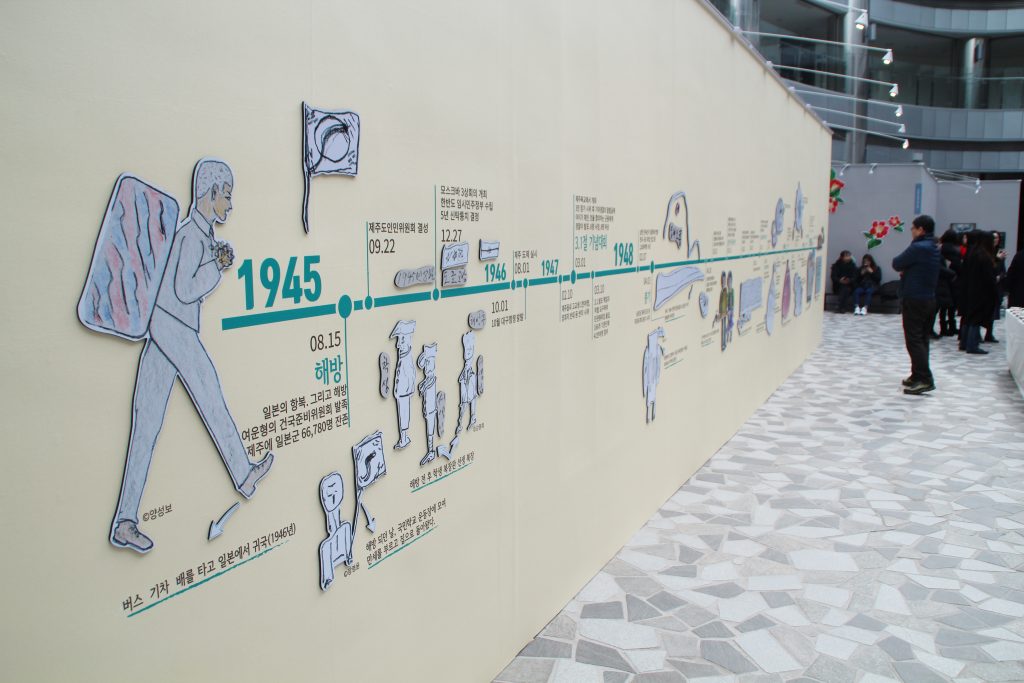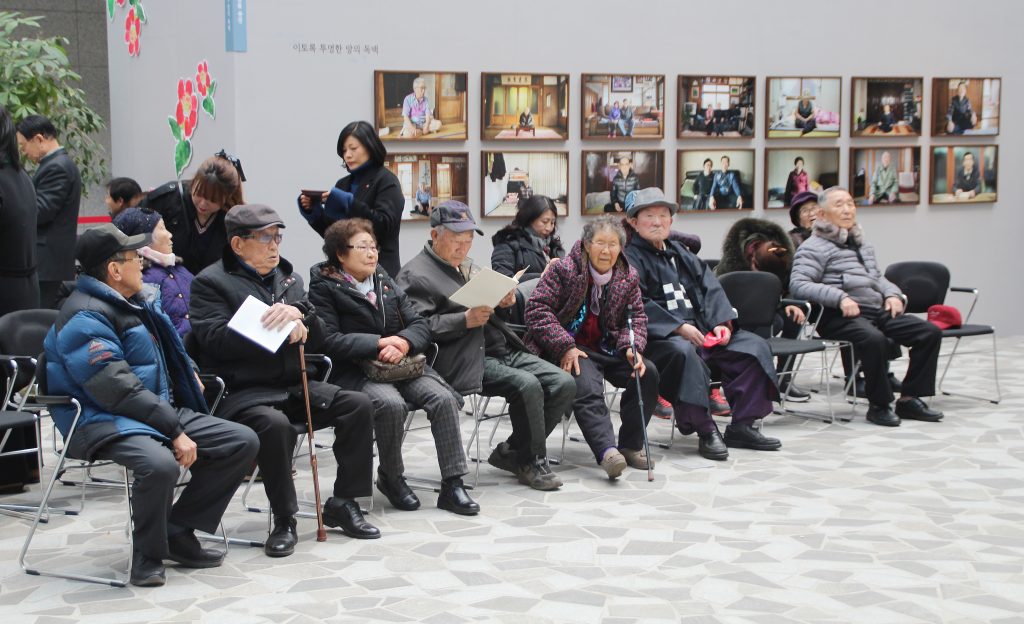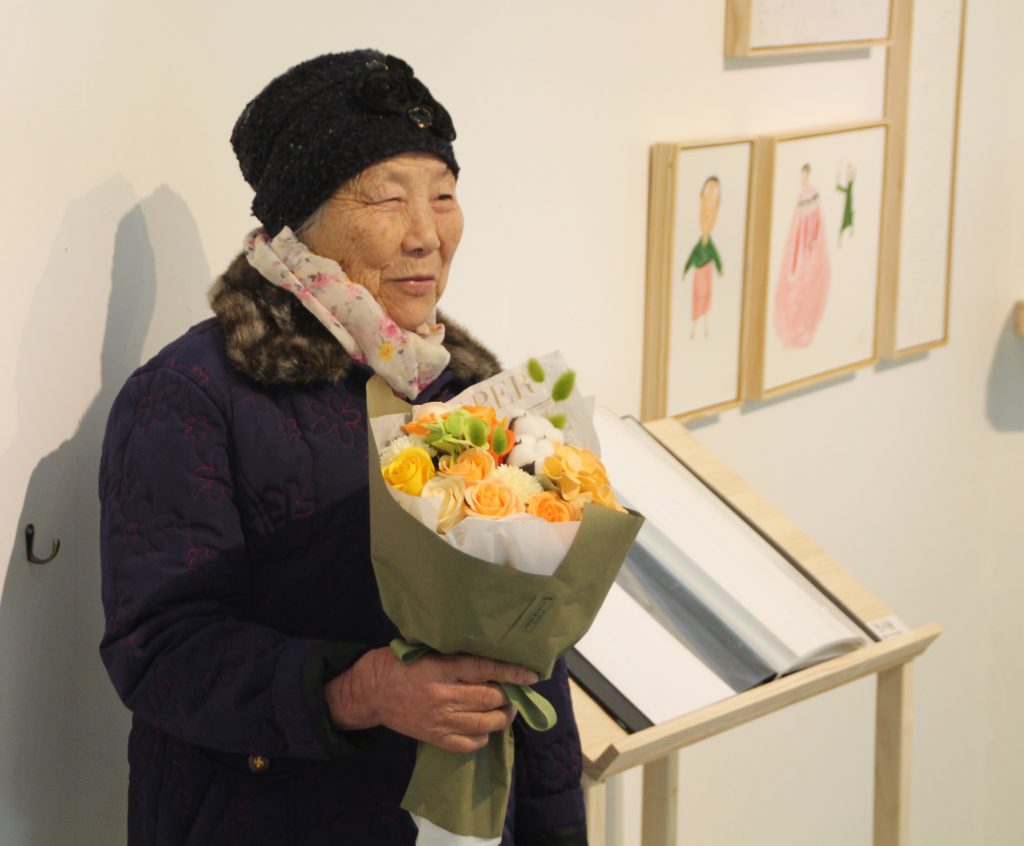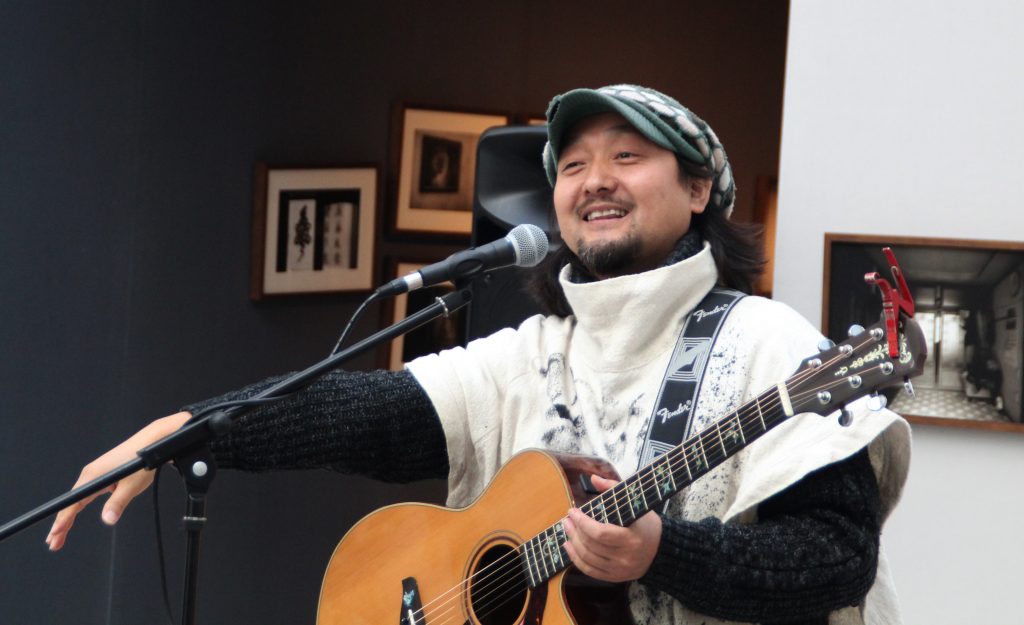Contributions to peace
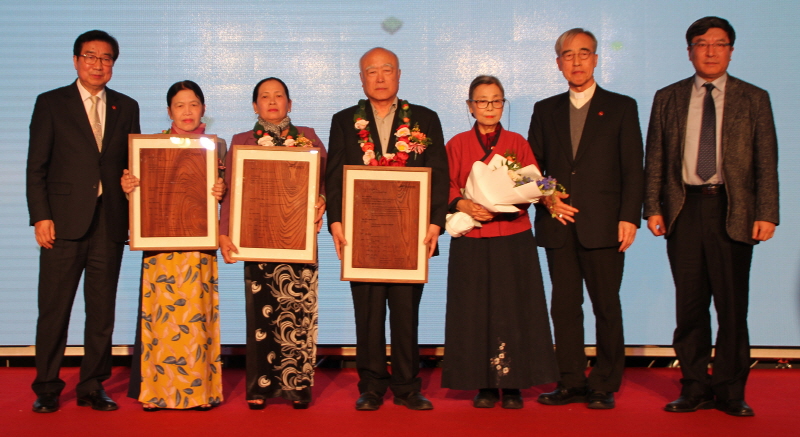
The 3rdJeju4‧3 Peace Prize Award Ceremony was successfully held on April 1
Korean novelist and Vietnamese peace activist awarded the prize
Novelist Hyun Ki Young, 78, who authored “Sun-I Samch’on” about Jeju 4‧3, and Vietnamese peace and human rights activist Nguyen Thi Thanh, were honored as the winners of the Jeju 4‧3 Peace Prize.
The Jeju 4‧3 Peace Foundation, chaired by Yang Jo Hoon, and the Jeju 4‧3 Peace Prize Committee, chaired by Cheju Diocese Bishop Peter Kang U-il, held the 3rdJeju4‧3 Peace Prize Award Ceremony on April 1, 2019, at Jeju KAL Hotel.
An estimated 300 guests attended the ceremony, including the bereaved families of Jeju 4‧3 victims and the heads and officials of major institutes from inside and outside Jeju. The distinguished attendees included Won Heeryong (Governor, Jeju Special Self-Governing Province), Kim Tae-suk (Chairperson, Jeju Special Self-Governing Provincial Council), Song Sam Hyun (Chief, Jeju District Public Prosecutor’s Office), Koh Hee Bum (Mayor, Jeju City), Yang Yoon Kyung (Mayor, Seogwipo City), Yi Kyoung-ja (Chairperson, Writers Association of Korea), Han Woo-sung (Chairperson, Overseas Koreans Foundation), Chu Chin Oh (Director, National Museum of Korean Contemporary History), Song Seung-moon (President, Association for the Bereaved Families of the 4‧3 Victims), Lee Chullwoo (Chairperson, May 18 Memorial Foundation), and Chung Koodo (Chairperson, No Gun Ri International Peace Foundation).
The ceremony was especially meaningful with the attendance of other esteemed figures, such as Kim Shi-jong (a renowned Korean-Japanese poet), Kim Dong-jeon (Director, Jeju Research Institute), Ko Kyung-dae (Chairperson, Jeju Culture & Art Foundation), Kang Yobae (a renowned Korean painter), and members of the Japanese Association for the Bereaved Families of the 4‧3 Victims, as well as a group of Vietnamese guests.
Chairperson Yang Jo Hoon of the Jeju 4‧3 Peace Foundation stated in his opening speech that the Jeju 4‧3 Peace Prize is awarded not just to compliment the performances of the winners but “to globally publicize the love of humanity, respect for peace and human rights, and the spirit of incessant struggles for correcting historic distortion.”
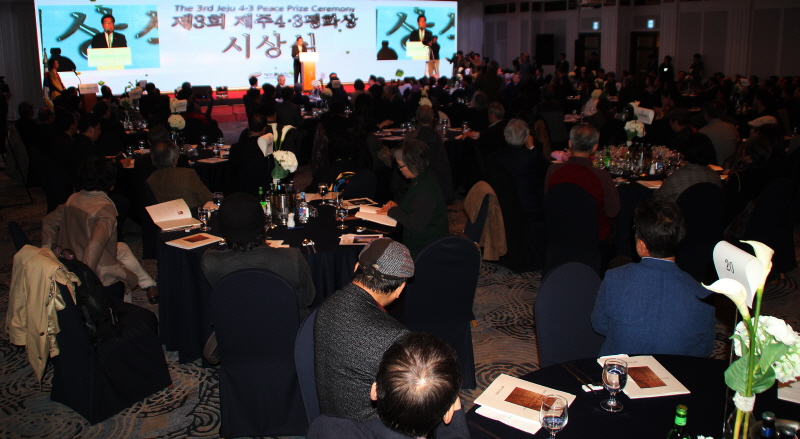 In presenting the award, Bishop Peter Kang U-il pointed out that Jeju Island suffered unspeakable grief over the numerous deaths seven decades ago. “We should bloom flowers of peace with the deaths of 30,000 Jeju 4‧3 victims as fertilizers,” Kang stressed, adding that in that manner, we can transmit the lessons learned to our future generations and fulfil our duty as the descendants of the innocent victims to comfort their souls.
In presenting the award, Bishop Peter Kang U-il pointed out that Jeju Island suffered unspeakable grief over the numerous deaths seven decades ago. “We should bloom flowers of peace with the deaths of 30,000 Jeju 4‧3 victims as fertilizers,” Kang stressed, adding that in that manner, we can transmit the lessons learned to our future generations and fulfil our duty as the descendants of the innocent victims to comfort their souls.
Novelist Hyun, the winner of the Main Prize, stated in his award acceptance speech that it is necessary to make efforts to incessantly revive the memories of Jeju 4‧3 to protect its truth, and called such an effort “the movement for continued memories.” Mentioning Jeju 4‧3 as “an eternal task that should be repeated over and over,” Hyun emphasized that continuous efforts to discover the truth of Jeju 4‧3 is “the only way to appropriately appease the victims’ souls.”
Nguyen from Vietnam’s Ha My Village, the winner of the Special Prize, stated in her acceptance speech that she will share the joy of winning this prize with the countless victims of Vietnamese massacres. She also pledged that the prize will serve as “a great impetus” for her continuous struggle for peace.
The survivor of the Phong Nhi/Phong Nhat massacre, Nguyen offered the honor of winning the prize as a “tribute to the departed souls of the 74 victims.” She also expressed her warmest gratitude to her fellow Korean activists for supporting her and all the other victims of the Vietnamese massacres.
The Main Prize winner was granted prize money worth US$ 50,000, and the Special Prize winner US$10,000.
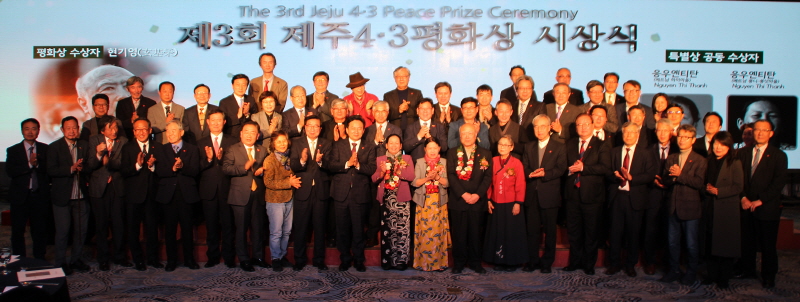 Both of the winners visited the Jeju 4‧3 Peace Park early the next morning to pay silent tribute to the souls of the Jeju 4‧3 victims at the Memorial Altar and toured the Ashes Enshrinement Hall and the Tombstone Park for the Missing.
Both of the winners visited the Jeju 4‧3 Peace Park early the next morning to pay silent tribute to the souls of the Jeju 4‧3 victims at the Memorial Altar and toured the Ashes Enshrinement Hall and the Tombstone Park for the Missing.
Hyun wrote “Bloom, the flowers of Jeju 4‧3” in the guest book. Nguyen left a written prayer that reads, “I and all of the other Vietnamese people wish that the souls of the Jeju 4‧3 victims will find eternal rest.”
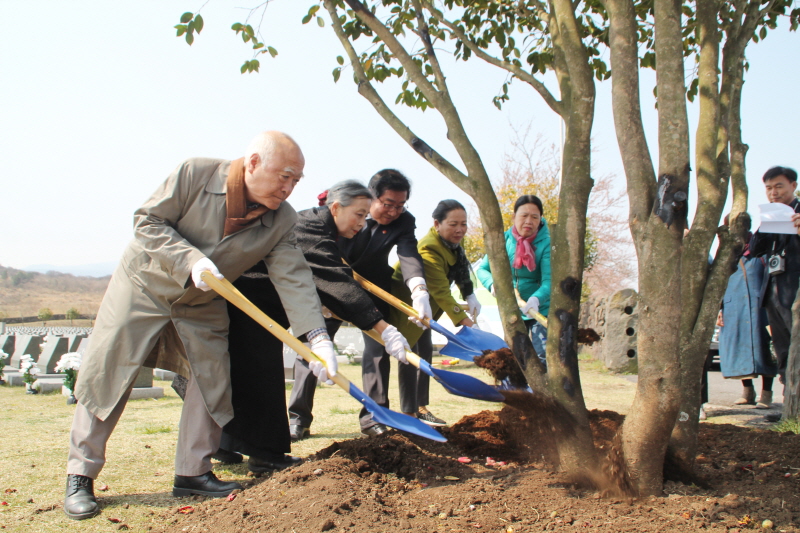 At the end of the visit, the winners joined in the camellia tree planting campaign of the Jeju 4‧3 Peace Park and attached the name tag to the tree.
At the end of the visit, the winners joined in the camellia tree planting campaign of the Jeju 4‧3 Peace Park and attached the name tag to the tree.
